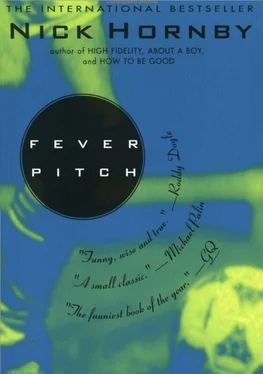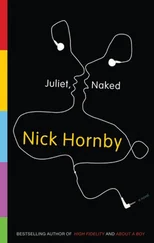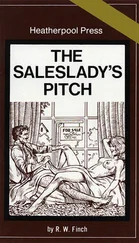My companions for the afternoon were affable, welcoming middle-aged men in their late thirties and early forties who simply had no conception of the import of the afternoon for the rest of us. To them it was an afternoon out, a fun thing to do on a Saturday afternoon; if I were to meet them again, they would, I think, be unable to recall the score that afternoon, or the scorer (at half-time they talked office politics), and in a way I envied them their indifference. Perhaps there is an argument which says that Cup Final tickets are wasted on the fans, in the way that youth is wasted on the young; these men, who knew just enough about football to get them through the afternoon, actively enjoyed the occasion, its drama and its noise and its momentum, whereas I hated every minute of it, as I had hated every Cup Final involving Arsenal.
I had now been an Arsenal supporter for ten seasons—just under half my life. In only two of those ten seasons had Arsenal won trophies; they had reached finals, and failed horribly, in another two. But these triumphs and failures had all occurred in my first four years, and I had gone from the age of fifteen, when I was living one life, to the age of twenty-one, when I was living a completely different one. Like gas lamps and horse-drawn carriages—or perhaps like Spirographs and Sekidens—Wembley and championships were beginning to seem as though they belonged to a previous world.
When we reached, and then won, the FA Cup semi-final in 1978, it felt as though the sun had come out after several years of November afternoons. Arsenal-haters will have forgotten, or will simply refuse to believe, that this Arsenal team was capable of playing delightful, even enthralling football: Rix and Brady, Stapleton and Macdonald, Sunderland and, best of all, for one season only, Alan Hudson … for three or four months it looked as if this was a team that could make us happy in all the ways in which it is possible to be made happy at football.
If I were writing a novel, Arsenal would win the ’78 Cup Final. A win makes more sense rhythmically and thematically; another Wembley defeat at this point would stretch the reader’s patience and sense of justice. The only excuses I can offer for my poor plotting are that Brady was patently unfit and should never have played, and Supermac, who had made some typical and unwise remarks in the press about what he was going to do to the Ipswich back four, was worse than useless. (He had made the same compound error, of boasting loudly and then failing to deliver, four years earlier, when he was playing for Newcastle; some time after the Ipswich fiasco the Guardian printed a Cup trivia question: “What is taken to the Cup Final every year but never used?” The answer they wanted was the ribbons for the losing team, which are never tied on to the handle of the Cup, but some smartass wrote in and suggested Malcolm Macdonald.) It was an overwhelmingly one-sided final, even though Ipswich didn’t score until the second half; we never looked like getting the goal back, and lost 1-0.
So I had now lost three out of three at Wembley, and was convinced that I would never, ever see Arsenal running around Wembley with anything at all. Yet ’78 is perhaps the least painful of the defeats, because I was with people who were not pained by it at all, not even the man with the red-and-white scarf (suspiciously clean, as if he had bought it outside the stadium). It is a strange paradox that while the grief of football fans (and it is real grief) is private—we each have an individual relationship with our clubs, and I think that we are secretly convinced that none of the other fans understands quite why we have been harder hit than anyone else—we are forced to mourn in public, surrounded by people whose hurt is expressed in forms different from our own.
Many fans express anger, against their own team or the supporters of the opponents—real, foul-mouthed fury that upsets and saddens me. I have never felt the desire to do that; I just want to be on my own to think, to wallow for a little while, and to recover the strength necessary to go back and start all over again. These men, the business types, were sympathetic but unconcerned. They offered me a drink and I declined, so they shook my hand and offered commiserations and I disappeared; to them, it really was only a game, and it probably did me good to spend time with people who behaved for all the world as if football were a diverting entertainment, like rugby or golf or cricket. It’s not like that at all, of course, but just for an afternoon it was interesting and instructive to meet people who believed that it was.
Sugar Mice and Buzzcocks Albums
CAMBRIDGE UNITED v ORIENT
4.11.78
What happened was, Chris Roberts bought a sugar mouse from Jack Reynolds (“The Rock King”), bit its head off, dropped it in the Newmarket Road before he could get started on the body, and it got run over by a car. And that afternoon Cambridge United, who had hitherto been finding life difficult in the Second Division (two wins all season, one home, one away), beat Orient 3-1, and a ritual was born. Before each home game we all of us trooped into the sweet shop, purchased our mice, walked outside, bit the head off as though we were removing the pin from a grenade, and tossed the torsos under the wheels of oncoming cars; Jack Reynolds would stand in the doorway watching us, shaking his head sorrowfully. United, thus protected, remained unbeaten at the Abbey for months.
I know that I am particularly stupid about rituals, and have been ever since I started going to football matches, and I know also that I am not alone. I can remember when I was young having to take with me to Highbury a piece of putty, or blu-tack, or some stupid thing, which I pulled on nervously all afternoon (I was a smoker even before I was old enough to smoke); I can also remember having to buy a programme from the same programme seller, and having to enter the stadium through the same turnstile.
There have been hundreds of similar bits of nonsense, all designed to guarantee victories for one or other of my two teams. During Arsenal’s protracted and nerve-racking semi-final campaign against Liverpool in 1980, I turned the radio off half-way through the second half of the last game; Arsenal were winning 1-0, and as Liverpool had equalised in the last seconds of the previous game, I couldn’t bear to hear it through to the end. I played a Buzzcocks album instead (the Singles—Going Steady compilation album), knowing that side one would take me through to the final whistle. We won the match, and I insisted that my flatmate, who worked in a record store, should play the album at twenty past four on Cup Final afternoon, although it did no good. (I have my suspicions that he might have forgotten.)
I have tried “smoking” goals in (Arsenal once scored as three of us were lighting cigarettes), and eating cheese-and-onion crisps at a certain point in the first half; I have tried not setting the video for live games (the team seems to have suffered badly in the past when I have taped the matches in order to study the performance when I get home); I have tried lucky socks, and lucky shirts, and lucky hats, and lucky friends, and have attempted to exclude others who I feel bring with them nothing but trouble for the team.
Nothing (apart from the sugar mice) has ever been any good. But what else can we do when we’re so weak ! We invest hours each day, months each year, years each lifetime in something over which we have no control; is it any wonder then, that we are reduced to creating ingenious but bizarre liturgies designed to give us the illusion that we are powerful after all, just as every other primitive community has done when faced with a deep and apparently impenetrable mystery?
Читать дальше











